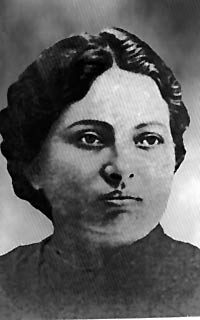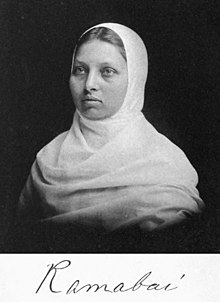give me some information about pandita ramabai
Pandita Ramabai (23 April 1858, Maharashtra- 5 April 1922) was an eminent Indian social reformer and activist.
She was a poet, a scholar, and a champion of improvement in the plight of Indian women. As a social reformer, she championed the cause of emancipation of Indian women. A widely traveled lady, she visited most parts of India, and even went to England (1883) and the U.S. (1886-88). She wrote a many books including her most well known work titled The High Caste Hindu Woman, which showed the darkest of subject matter relating to the life of Hindu women, including child brides and the treatment they receive by the government. She had a strong view of what should be accomplished so women would be able to have more freedom, including protection of widowed women and child brides and she was also against the practice of suttee.
Pandita Ramabai was born into an intellectual Brahmin family. Her father believed that women should have an education and against traditional Hindu social structure he taught Ramabai as well as his second wife, Ramambai’s mother Puranic and how to read and write Sanskrit. As well as how to interpret vedic texts. She was raised by her father Anant Shastri Dongre and her mother Lakshmibai. Her father was a scholar of Sanskrit, and her mother was educated as well. They were a Chitpawan Brahmin couple. Through her childhood Ramabai proved to be a dedicated student and a good learner. In her book "The High-Caste Hindu Women" she writes that less than one percent of Hindu women were educated and able to read or write. Her education was of such importance to her father that he went against tradition and didn’t arrange her marriage at a young age like most Hindu girls. Her father, mother and sister died of starvation during the famine of 1874-76, and her brother and she traveled around and eventually ended up in Calcutta.




 PANDITA MARY RAMABAI
PROPHETIC WITNESS AND EVANGELIST IN INDIA, 1922
PANDITA MARY RAMABAI
PROPHETIC WITNESS AND EVANGELIST IN INDIA, 1922 Pandita Ramabai (23 April 1858, Maharashtra- 5 April 1922) was an eminent Indian Christian social reformer and activist.
Pandita Ramabai (23 April 1858, Maharashtra- 5 April 1922) was an eminent Indian Christian social reformer and activist.




